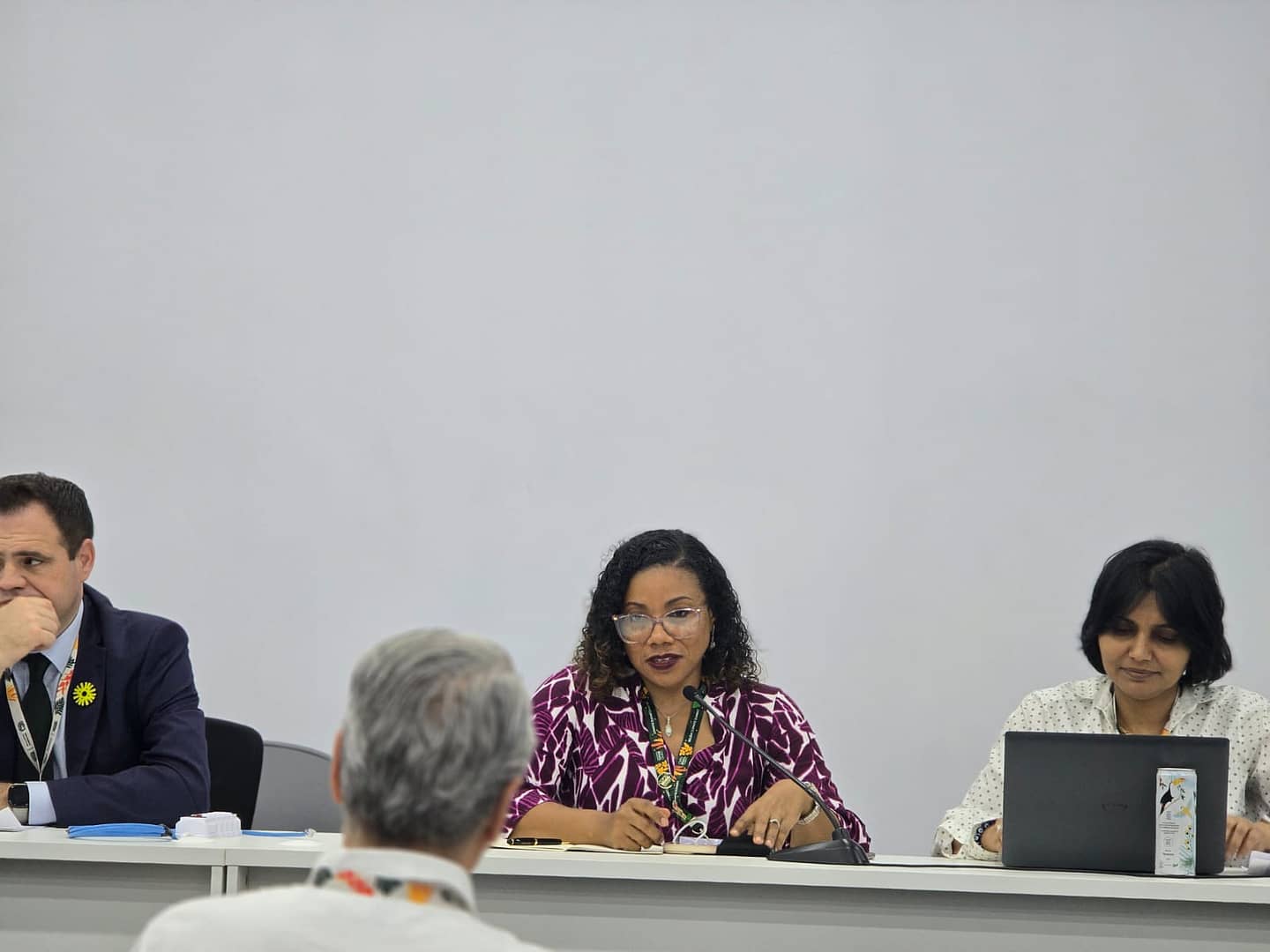At the COP30 summit in Belém, Brazil, Her Excellency Ruleta Camacho Thomas, Ambassador for Climate Change for Antigua and Barbuda, delivered a compelling address during a high-level side event titled ‘Building Climate Resilience through Debt Reform, Infrastructure Investment, and Private Sector Action.’ Representing the Government of Antigua and Barbuda, Ambassador Camacho Thomas emphasized the urgent need for systemic financial reforms to empower Small Island Developing States (SIDS) in achieving climate-resilient prosperity.
Ambassador Camacho Thomas underscored the existential threat posed by debt to SIDS, stating, ‘Debt is not a technical issue but an existential one for small island nations.’ Despite contributing less than one percent of global emissions, these nations are among the most vulnerable to climate impacts. ‘Every storm, hurricane, or drought forces us deeper into debt as we rebuild what climate disasters destroy,’ she explained. This cycle of debt and disaster has left over 40 percent of SIDS in or near debt distress, with many spending more on debt servicing than on essential sectors like health, education, or climate adaptation.
The Ambassador highlighted the Antigua and Barbuda Agenda for SIDS (ABAS), a 10-year development strategy adopted by SIDS, which outlines a comprehensive framework to align debt reform, resilience, and sustainable growth. A cornerstone of ABAS is the Debt Sustainability Support Service (DSSS), a pillar of the Centre of Excellence for SIDS. The DSSS integrates debt reform, climate resilience, and access to finance, offering tools such as debt swaps, restructuring, and climate-contingent clauses to create fiscal space during disasters. It also promotes risk-layered protection systems through insurance and reserves, while channeling savings from debt relief into resilient infrastructure and climate-aligned growth.
Ambassador Camacho Thomas clarified that the DSSS is not a fund but a coordination mechanism connecting existing tools, institutions, and financial flows. ‘It transforms how the financial system treats vulnerable economies, ensuring financial flows align with climate-resilient development,’ she said. She stressed that debt sustainability and climate resilience are inseparable, and reforms like the DSSS are vital for SIDS to achieve resilient prosperity.
Antigua and Barbuda is collaborating with SIDS, Least Developed Countries (LDCs), and fragile states to operationalize the DSSS, providing technical expertise, supporting fairer negotiations, and ensuring debt relief translates into tangible resilience investments. Ambassador Camacho Thomas called on development banks, donors, rating agencies, and private investors to prioritize climate finance for debt and resilience reform. ‘Resilience begins with fiscal and financial stability,’ she concluded. ‘The DSSS aligns debt reform with the fight for climate justice. For small islands, this is about survival, dignity, and the right to a sustainable future—achieved through fairness and reform, not charity.’
